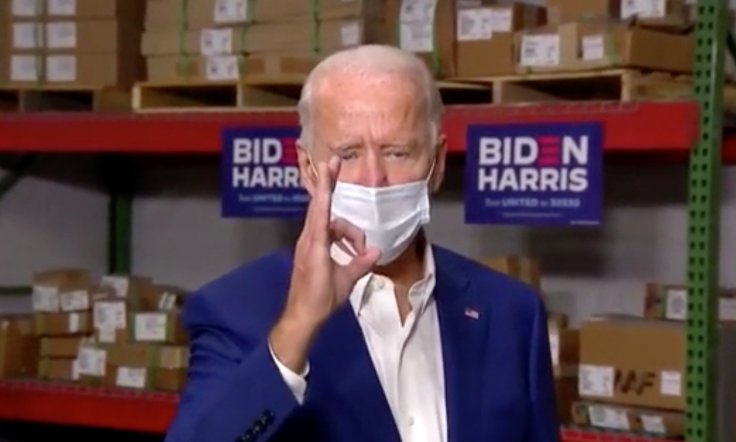The Democratic candidate for US President, Joe Biden, has been a major critic of President Donald Trump's handling of the coronavirus pandemic, from wearing a mask to denying funds to the global health body World Health Organization. If elected, he would inherit a haphazard pandemic response, said several researchers contacted by Nature in its study.
Since early polls hint that Democratic challenger Joe Biden and his running mate, Senator Kamala Harris of California, have a lead over Trump, a win in elections will push him to lead a country in the throes of the coronavirus pandemic that has destroyed lives and livelihoods, besides a deeply divided public opinion on the true extent of the crisis.

"The problem with our whole response is that we've been changing the response since day one," said Georges Benjamin, the executive director of the American Public Health Association in Washington DC. He listed among others hurdles such as testing failures, a lack of contact tracing, confusion and debate about wearing face masks and restrictions on gatherings. Coming out with a strong response plan will be crucial for stabilizing both the crisis and the battered US economy, he said.
Biden's campaign team has been working on pandemic plans since March. It has promised to ramp up the country's test-and-trace programs; address racial and ethnic disparities in COVID-19 infection rates and outcomes; and rebuild pandemic-readiness programs cut by the Trump administration.
Turn-around time
Kavita Patel, a physician who advises on health policy for Kamala Harris but not part of the election campaign, insists that Biden's staff members "need to hit the ground running" in order to turn around the present crisis.
To begin with, Biden's team should undo the damage done by Trump's aversion to wearing masks, despite health researchers' assurance contrary to that. To bring a change in the public perception overnight may not be possible but hopefully the viral spread may bring about that change by the time the change in administration hopefully takes effect next year.
"We need to figure out a bipartisan push and identify who are the right messengers," said Marta Wosińska, the deputy director of Duke University's Margolis Center for Health Policy in Durham, North Carolina.

If Biden wins, the first task of his administration will have to be to restore public trust in the Centers for Disease Control and Prevention (CDC) and the Food and Drug Administration (FDA) -- both criticized by Trump repeatedly in the last six months of pandemic. The CDC has overhaul itself and become transparent, to guide the public on risks of reopening restaurants, schools and public spaces. "Agency scientists feel marginalized and that their voices aren't heard," Patel said. "You need someone who can reinvigorate them."
Support to WHO
If elected, Biden has committed to support the World Health Organization (WHO) and restore funding the global health body that Trump began to withdraw since July. It goes along with the U.S. eventually joining its international COVAX facility, which is rigorously striving to find and manufacture coronavirus vaccines.
Unless international partnerships, including COVAX are pursued vigorously, finding vaccine for all will not be easy. "We haven't come to the table with other countries on vaccines, and that could change the course of how things play out," she pointed out, vouching for these partnerships to expand global manufacturing. Biden's team has pledged that an eventual vaccine will be priced fairly.
Moving ahead, researchers hope that a Biden administration will build up US health infrastructure to better prepare for future pandemics, an initiative that was kickstarted by the Bush Administration but undermined by Trump."We absolutely know how to do this. We know what it looks like," said Benjamin. "We just have to have the leadership and the commitment of resources to do it."









